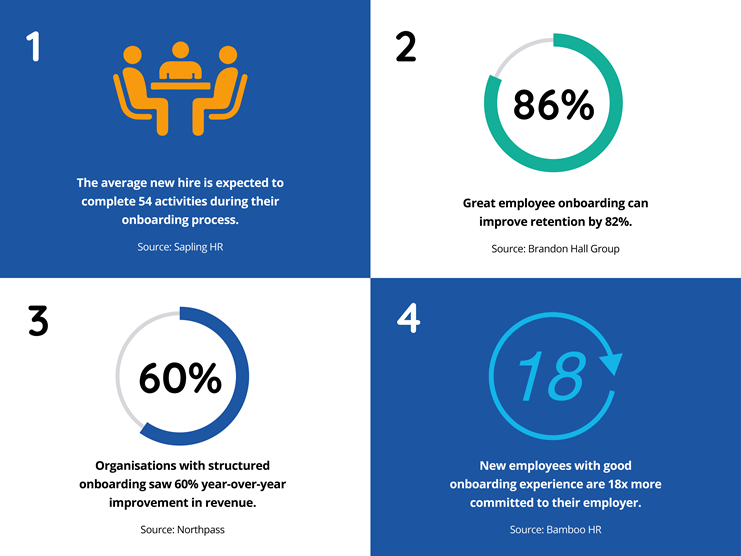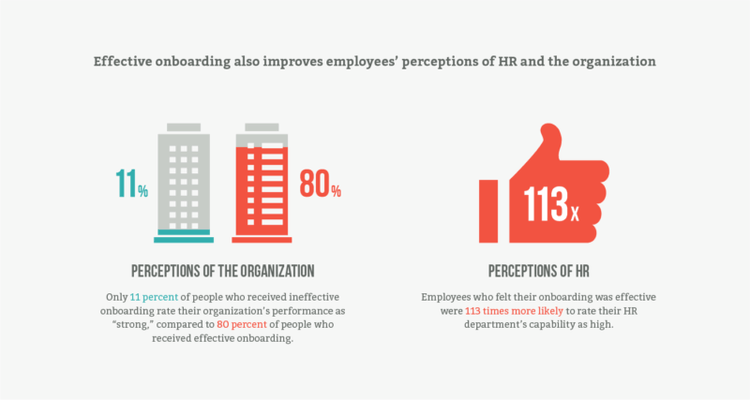The success of any software development team hinges on how effectively new developers are assimilated into the company culture and workflows. An exceptional onboarding process not only boosts productivity and innovation but also fosters long-term employee retention. In this article, we will explore the essential steps to create an effective developer onboarding process, backed by real statistics and surveys, to ensure a smooth transition and set the stage for future growth.

The Impact of Developer Onboarding on Retention
The significance of a robust onboarding process cannot be overstated. According to the Society for Human Resource Management (SHRM), companies with a structured onboarding program experienced a 50% increase in new hire productivity. Additionally, the Stack Overflow Developer Survey 2021 revealed that a staggering 92% of developers consider the onboarding experience as a crucial factor in deciding whether to stay with a company for the long term.
1. Tailoring a Comprehensive Onboarding Plan
A successful onboarding process requires careful planning and attention to detail. Consider the following steps:
Preparing Pre-boarding Materials:
Getting new developers up to speed before their first day is essential. Click Boarding's Employee Onboarding Survey reported that 76% of employees feel more prepared and engaged when provided with onboarding documents and tasks before their official start date. Offer an onboarding package that includes necessary paperwork, company information, and a warm welcome to instill a sense of belonging from the outset.
Setting Clear Goals and Expectations:
Clarity regarding roles and expectations plays a pivotal role in employee engagement. A Gallup survey found that employees who receive clear expectations during their onboarding process are 30 times more likely to be engaged in their work. Establish clear objectives, KPIs, and performance metrics to guide new developers in their roles and foster a sense of purpose.
Providing Mentorship and Buddy Programs:
Mentorship programs are powerful tools to enhance employee retention. HR Technologist's research discovered that new developers who participate in a mentorship program are 67% more likely to remain with the company for over three years. Pairing new hires with experienced mentors or buddies offers guidance, support, and camaraderie during the critical onboarding phase.
2. Cultivating a Culture of Continuous Learning
The world of software development is constantly evolving, making continuous learning a vital aspect of any onboarding process. LinkedIn's Workplace Learning Report disclosed that 94% of employees are more likely to stay with a company that invests in their career development.
Access to Learning Resources:
Providing access to learning resources is a game-changer. Udemy's Employee Learning Survey revealed that 78% of employees feel they perform better in their roles when equipped with relevant learning materials. Offer online courses, workshops, and tutorials tailored to the specific needs of new developers to nurture their skills and knowledge.
Encouraging Participation in Hackathons and Tech Conferences:
Hands-on experiences like hackathons and tech conferences are invaluable for skill development and fostering creativity. HackerRank's Developer Skills Survey showed that 86% of developers find hackathons to be enriching learning opportunities. Encourage participation in such events to ignite innovative thinking and foster a collaborative spirit among new and seasoned developers.

3. Embracing Feedback and Continuous Improvement
Collecting feedback and adapting the onboarding process accordingly is vital for sustained success. Glassdoor's research revealed that companies that actively seek feedback and make improvements to their onboarding experience observe a 33% decrease in employee turnover.
Conducting Onboarding Surveys:
Regularly administer onboarding satisfaction surveys to new developers to gather insights into their experiences, identify areas of improvement, and discover potential pain points.
Implementing Feedback Effectively:
Act on the feedback received to refine the onboarding process continually. Address concerns, incorporate valuable suggestions, and iterate on the plan to enhance the experience for future hires.
Summing up
An effective developer onboarding process is a strategic investment that reaps long-term rewards for both employees and the organization. By utilizing data-driven strategies and incorporating real statistics and surveys, companies can create an onboarding experience that fosters engagement, accelerates productivity, and cultivates a culture of continuous learning. Empowered with the knowledge of what works best, your organization can embark on a journey of building a talented, motivated, and cohesive development team.
Next steps
If you're seeking to hire skilled remote contractors for full-time or project-based software development, Index.dev is the best partner to team up with.
✓ Rigorously vetted and assessed professionals
✓ 97% successful match rate
✓ Average matching time of just 48 hours
✓ Transparent pricing with no hidden fees
At Index.dev, we take pride in our trusted vetting process, ensuring you get access to the best-fit candidates.
You can also find more insights shared by our customers and their experiences with seamlessly integrating remote software developers into their team: